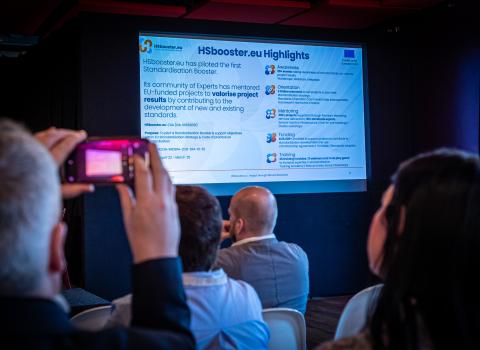As the European Union economy threatens to dip into recession again, the 20.7 million small and medium-size companies (SMEs) that form its backbone are yet to recover to their pre-crisis levels in terms of value-added and employment, according to the European Commission’s 2012 annual report on the status of SMEs published this week.
The report, ‘EU SMEs in 2012: at the cross roads’ might more appropriately be entitled ‘EU SMEs in 2012: at a standstill’, since only in Austria, Germany and Malta are small enterprises showing signs of recovery.
Admitting the situation is fragile, the European Commission vice president Antonio Tajani, Commissioner for Industry and Entrepreneurship promised decisive policy action to tackle the factors that determine. At the heart of this is a plan to boost entrepreneurialism, which is due to be unveiled next week. The plan will complement and build on the Small Business Plan for Europe and a Commission proposal to reindustrialise Europe published last week.
“SMEs have the potential to restore growth in Europe,” Tajani said, promising “the most ambitious action plan to boost entrepreneurship Europe has ever seen,” will be published in November, offering an unprecedented level of support and advice. “We [are] try[ing] to restore confidence so that SMEs can make progress once again and drag us out of the current crisis,” said Tajani.
High-tech leads the way
The update on the status of Europe’s small companies (92.2 per cent of which have fewer than ten employees) was released by Tajani as part of Europe SME week that is taking place in Brussels.
If there is one bright spot in the report, it is that businesses in high-tech and knowledge-intensive sectors are putting on a stronger performance than their low-tech counterparts.
The 43,000 SMEs in high-tech manufacturing and 4.3 million providing knowledge-intensive services showed above average productivity growth.
In addition, there is a relationship between the growth of real value-added and the technology-intensity of SMEs. This results in member states that have a large share of high-tech and medium-tech manufacturing employment in relation to their total SME employment, tending to have higher growth. The finding provides both motive and justification for singling out high-tech SMEs as a special case and shaping policies specifically to support this important subsector of SMEs.
The report argues that the creation of more such enterprises should be an integral part of any growth strategy and suggests appropriate policy measures.
The role of universities
A policy area that is central to increasing the proportion of technology-intensive SMEs involves stimulating the formation of university start-ups.
The report reviews measures that have been taken to promote the creation of knowledge- and technology-intensive SMEs and bridge the gap between public sector research and the business world, highlighting those that have been successful.
Support measures aimed at increasing the number of research-based spin-offs, include: revision of researcher’s status, introducing intellectual property rules, presenting annual awards, promoting campus entrepreneurs, improving access to finance for student entrepreneurs, supporting business incubators, certifying business incubators and providing support for result-oriented knowledge transfer offices.
The role of incubators
Policymakers, both nationally and regionally, view business incubators as an important tool for promoting economic development, innovativeness and the emergence of new technology-based growth firms.
However, the establishment of an incubator requires considerable investment by various stakeholders, while views on its returns to the society differ. Therefore, there is a need to develop a best-practice incubation model, the report says





 A unique international forum for public research organisations and companies to connect their external engagement with strategic interests around their R&D system.
A unique international forum for public research organisations and companies to connect their external engagement with strategic interests around their R&D system.